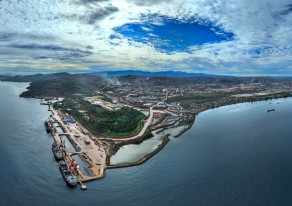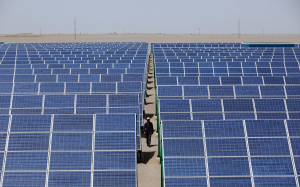Canada offers collaboration with Indonesia on nuclear energy development
Canada’s Minister of Small Business, Export Promotion, and International Trade, Mary Ng, has extended an invitation to the Indonesian government to collaborate on nuclear power plant development.
This proposal came shortly after the two nations finalized the substantive agreement for the Indonesia-Canada Comprehensive Economic Partnership Agreement (ICA-CEPA).
During a business roundtable hosted by the Indonesia Business Council and the Business Council of Canada in Jakarta on Tuesday, December 3, 2024, Ng highlighted Canada's expertise in clean energy and nuclear technology.
"Clean energy is Canada’s specialty, and nuclear technology presents a real opportunity for collaboration," she said, while adding that ICA-CEPA aligns well with Indonesia’s goal of achieving energy resilience.
Energy collaboration
Ng emphasized the timeliness of the ICA-CEPA agreement, pointing out its alignment with Indonesian President Prabowo Subianto's focus on clean and renewable energy.
She also noted the productive discussions between President Prabowo and Canadian Prime Minister Justin Trudeau at the recent APEC Summit, which revolved around deepening bilateral cooperation in energy and clean technology.
Dyah Roro Esti Widya Putri, Indonesian Deputy Minister of Trade, acknowledged that while there have been no official talks on nuclear energy development with Canada, the ICA-CEPA agreement includes provisions for collaboration on clean and renewable energy.
She reiterated President Prabowo's commitment to achieving net-zero emissions by 2060 and highlighted the recently signed memorandum of understanding on critical minerals, which could facilitate clean energy investment and technology adoption in Indonesia.
Indonesia’s nuclear energy vision
Indonesia’s government has ambitious plans to integrate nuclear energy into its power grid as part of its renewable energy strategy.
President Director of State power utility PT PLN, Darmawan Prasodjo, has outlined plans to increase electricity capacity by 102 gigawatts by 2040, with 5 gigawatts generated from nuclear power plant.
In line with these plans, the National Energy Council, led by Minister of Energy and Mineral Resources Bahlil Lahadalia, aims to finalize regulations for nuclear energy by 2025.
Indonesia’s first nuclear power plant (PLTN) is expected to be operational by 2032, with an initial capacity of 250-500 megawatts.
Sustainable energy future
Indonesia’s nuclear initiative complements broader renewable energy targets, which include significant contributions from solar, wind, geothermal, hydro, and bioenergy sources.
These plans align with ICA-CEPA’s objectives to foster investments in clean energy technologies between Indonesia and Canada.
As the partnership develops, both nations are poised to strengthen ties in energy innovation, aiming for a cleaner, more sustainable future.
Already have an account? Sign In
-
Start reading
Freemium
-
Monthly Subscription
30% OFF$26.03
$37.19/MonthCancel anytime
This offer is open to all new subscribers!
Subscribe now -
Yearly Subscription
33% OFF$228.13
$340.5/YearCancel anytime
This offer is open to all new subscribers!
Subscribe now






